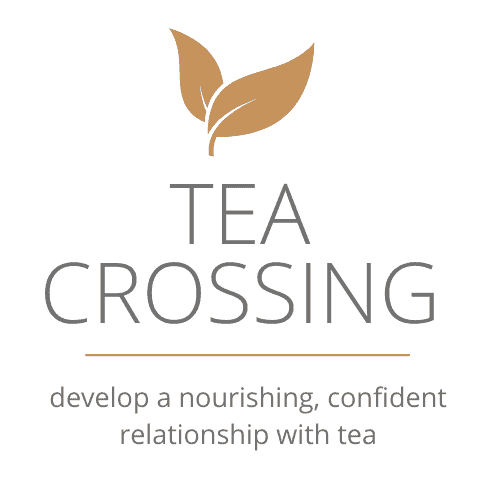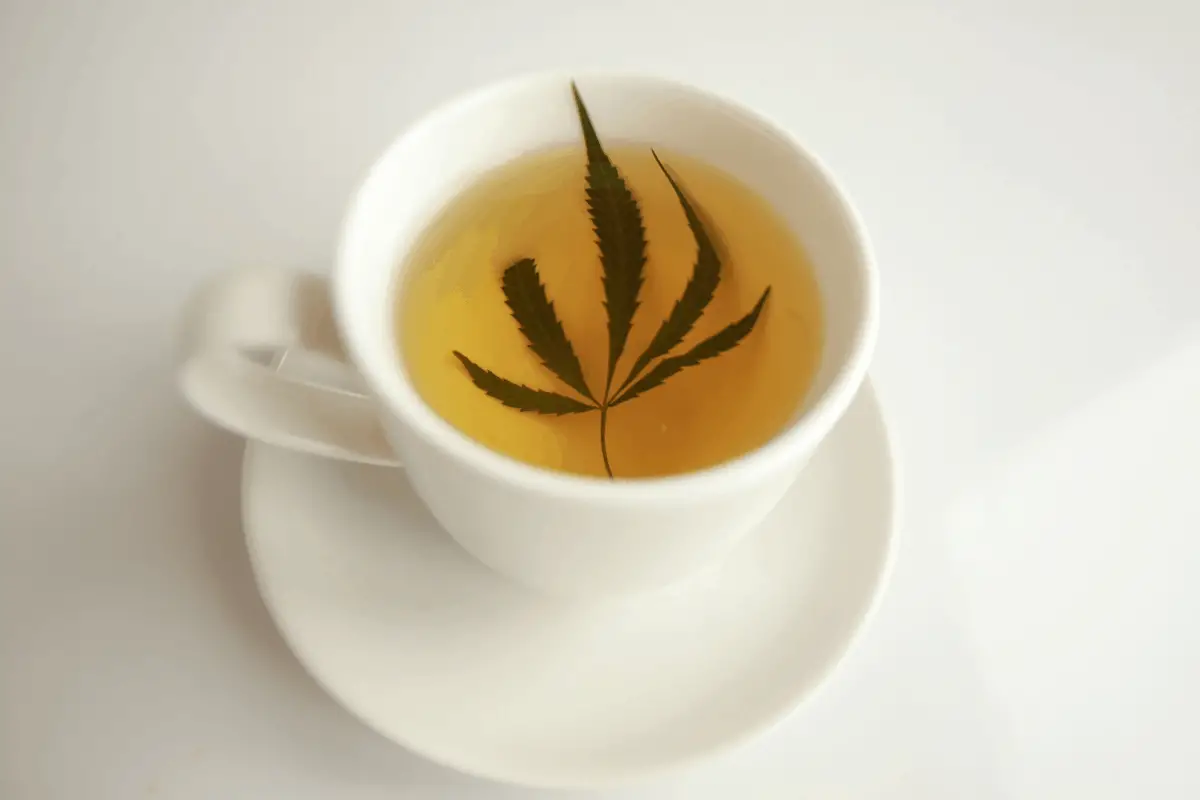I love to fast intermittently, and the practice has become a routine part of my life. Fasting has become more common for not only overall weight loss, but also for the many health benefits. Obviously, while food isn’t an option during a fast, tea can help settle hunger pangs and keep you hydrated. But does drinking tea disrupt the fasting process? I needed to know for myself since both drinking tea and fasting have become two of my favorite practices. Here’s what you need to know.
Tea does not break a fast. As part of any fasting regimen, tea is a healthy, non-caloric beverage to consume. Drinking plain tea maintains a fast while adding energy-boosting caffeine, immune support, antioxidants, and catechins that promote detoxification.
Another question of contention is whether or not you can add anything to your tea.
The answers depend on what kind of fast you’re pursuing and how strictly you are defining a fast. In fact some evidence demonstrates that a caloric intake of 800 calories or less is considered a form of fasting.
“Incorporating tea into your fasts will help you ride the highs and lows of fasting, as well as add innumerable health benefits.”
TEA CROSSING
Intermittent fasting, water fasting, and modified fasting are different approaches with different requirements and results.
Regardless of which type of fast you prefer, let’s cover how to incorporate tea without breaking your fast.
How Tea Can Help Your Fast? 5 Favorite Ways
When you first start a fast of any kind, it can be difficult to maintain your diligence and your sanity. You may be tempted to unfurl a chocolate bar or rush to your nearest bakery.
Drinking tea, though, is probably a better method for dealing with your feelings and hunger.

Here are five ways tea supports your fast:
#1: Plain Tea Has Zero Calories
It’s true: plain tea leaves and water are both calorie free.
Actually, tea does contain trace amounts of carbohydrates, but it’s not nearly enough to offset the beneficial processes of fasting. That being said, it’s probably inadvisable to add anything to your tea, and you should be sure to check the label.
Artificial sweeteners can throw off your body’s hunger signals or create an insulin response. In addition, sugar or creamer may contain enough calories to switch your body off of “fasting mode”, otherwise known as autophagy.
The fat-burning process known as ketosis is in effect within a forty or fifty calorie limit, though, so, if unsweetened tea is a deal breaker, a little sugar or creamer might be acceptable.
#2: Tea Contains Caffeine
Some teas, such as black and green tea, contain caffeine, which is an appetite suppressant. Or, to put it another way, the caffeine in tea signals to your brain sensations of fullness.
There are actually complex evolutionary and biochemical reasons for this, but let’s just say that Earl Grey is good for more than that cozy feeling in your tummy.
In addition, black, green, and white teas also contain an amino acid called I-theanine. Coffee and tea can both provide some needed energy during a fast, but l-theanine in tea prevents the crash that is the all-too-common side effect of consuming too much coffee.
#3 Tea Boosts Relaxation
Ironically, even though some teas contain caffeine and will probably give you a boost of energy, other teas can offer relaxation.
Not only is steeping and drinking tea a relaxing ritual itself, many herbal teas offer compounds that ease stress and anxiety. Teas such as peppermint, chamomile, lavender, and lemon balm fall into this soothing category.
#4 Tea Aids Detoxification
Drinking tea during a fast can support your body’s natural detoxification process.
Fasting activates a protein in your body that initiates a state called autophagy. During autophagy, the body is in a condition to eliminate dead cells while regenerating new cells. This entire process helps you to retain muscle mass and slow down the aging process.
Catechins in tea also help to activate the state of autophagy. This tea compound provides antioxidant support to fight free radicals linked to aging and degenerative diseases.
#5 Green Tea Contains Catechins and Polyphenols
As stated above, green tea contains catechins which can help regulate levels of ghrelin, a hormone related to hunger. Catechin is a type of polyphenol, a tricky category of substances that has caused some speculation and debate in dietary circles. In short, they provide many health benefits for people who want to fast, primarily by increasing energy levels and decreasing hunger.
Although the amount of polyphenols in a normal serving of green tea are probably not enough to make a difference, cold-brewing green tea can concentrate the amount of polyphenols in a normal serving.
This article by Dr. Jason Fung is a great resource if you’re interested in how green tea can help your fast.
How to Incorporate Tea Into Your Fast
Now that you know that tea can be a great addition to any kind of fast, and that drinking it won’t break your fast, you may be wondering what kind of tea to drink or how to drink it.
“Tea does not break a fast. As part of any fasting regimen, tea is a healthy, non-caloric beverage to consume.”
TEA CROSSING
There are a variety of methods that each have unique benefits.
If you want to drink tea to make your fast more bearable, you may try the “dirty fast” method, which I’ll describe below. If, on the other hand, you want to drink tea to maximize the health benefits of your fast, you should look into cold brewing.

Here are two methods to try:
Dirty Fasting
In an interview with MBG Health, Amy Shah, M.D. describes a method of fasting that works with some of her patients and may help anyone who is struggling with the hunger induced by fasting. She calls it “dirty fasting”. The idea is that a low amount of calories near the end of a fast will help you endure those last few hours, which can be the most difficult. Shah says, “For me, I like to fast as long as possible with just water—that might be 13 or 14 hours of a water fast—then I’ll have my tea with almond milk (the start of my ‘dirty fast’) and end at around 16 hours.”
Cold Brewing
As already discussed, two to three cups of green tea a day is not enough to experience the benefits of catechins and polyphenols. But cold brewing is a way to “up the dosage” in a cup of tea.
While hot brewing causes oxidation and degradation of the healthy compounds in tea, cold brewing preserves them.
In his article, Dr. Jason Fung recommends steeping green tea in room temperature water for six hours. This way you’re getting the most out of your tea, and you don’t have to drink it by the bucketful.
Four Teas for Fasting
There’s a whole world of teas out there which may seem exciting or daunting. But the most important thing to know when you’re fasting is if the tea you’re drinking has zero calories. Most teas are safe on that front, but you should always check the label. There are some herbal teas with fruit chunks that have a small amount of calories.
If you’re “dirty fasting”, this might be fine, but you should know that any amount of calories is enough to disrupt autophagy, your body’s “fasting mode”.
Otherwise, there are plenty of teas to look into and try that have zero calories.

Here are four teas to consider:
Green, Black, and White Teas
These traditional teas are all great for fasting and phenomenal for your health in general. They all contain caffeine and may give you a boost of energy, focus, and weight loss.
Rooibos Tea
Rooibos (pronounced “roy-boss”) is a red herbal tea from Africa that can help your liver detoxify and may aid in weight loss. This herbal tea is caffeine free and can be a relaxing evening drink.
Ginger Tea
Ginger tea can ease hunger pangs as well. You can even steep fresh ginger with your tea to boost your immune system, ease stomach issues, and decrease inflammation.
Chamomile Tea
Chamomile tea has long been used for relaxation and sleep. It may help to curb fasting anxiety at the end of the day. You may want to steep it together with another relaxing herb such as Peppermint, Lavender, or Lemon Balm.
3 Types of Fasts to Consider
As fasting has gained popularity, different types of fasting have proliferated. Luckily, tea fits neatly into just about every type. People fast for various reasons including managing health concerns such as diabetes or high blood pressure. Currently, fasting for gut health and weight loss are the most popular.
You should always talk to your doctor before starting a fast.

Here are three types of fasts to consider:
Fast Type #1: Intermittent Fasting
This is the most popular type of fast. There are various ways to do it. You can fast for sixteen hours and eat small meals over the course of eight hours. This is called the 16/8 method. Or, you can fast completely for a couple of days out of the week.
Fast Type #2: Water Fasting
This is as simple as it sounds. Unless it’s for a medical procedure, tea and coffee can also be included. Water fasting helps your digestive process rest and kicks your body into autophagy and ketosis, those ever helpful processes that lead to weight loss.
Fast Type #3: Modified Fasting
Similar to “dirty fasting”, modified fasting is a way to fast that takes into account the different health needs of individuals. For example, some people might need a few calories within a fast to maintain their blood sugar. As Mary Poppins says, a spoonful of sugar helps the medicine, or tea, go down.
Thankfully, it’s totally fine to have a cup of tea with almost any type of fast. As long as you skip the cream and sugar, the calories are negligible.
Incorporating tea into your fasts will help you ride the highs and lows of fasting, as well as add innumerable health benefits.

